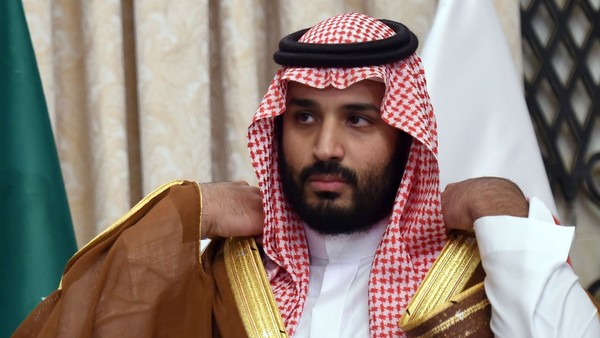Will Saudi Arabia’s ambitious reform programme work?
Mohammed bin Salman hopes to rebalance its economy away from oil, writes David Gardner
Saudi Arabia has unveiled the most far-reaching reform programme in the kingdom’s history, in its latest attempt to wean the country off dependence on falling oil revenue and shift towards a post-oil economy over the next decade and a half.
More broadly, the planned shift towards a post-oil economy requires the phasing out of the kingdom’s massive subsidies bill, by moving closer to market pricing for fuel and electricity, water and transport. The impact on lower-income families will be cushioned by direct cash transfers.
Along with taxation measures, the idea is to create fiscal room for education reform and desperately needed jobs for a young, underemployed and often underqualified population. As a rule, the vast majority of Saudis work for a now unaffordably bloated public sector while the private sector relies on expatriate labour.
Prince Mohammed has said he also intends to introduce accountability in public administration, by curbing waste and corruption — including at his defence ministry, responsible for one of the biggest arms procurement programmes in world.
It is an exercise fraught with risk, for the deputy crown prince, known as MbS, and the ruling family. The uproar over higher water charges, for example, led to the water minister being fired last weekend. If carried out, these reforms could change radically the underlying bargains between the kingdom’s rulers and their subjects.
More fundamentally, the cornerstone of the Saudi state is the compact between the House of Saud and the Wahhabi clerical establishment that, in exchange for control over education and the judiciary, provides the rulers with legitimacy. This is a symbiotic relationship between absolute monarchy and an Islamic doctrine so absolute it treats all other beliefs as illicit, fuelling jihadist sentiment in the kingdom and the region. While MbS has fired a few warning shots at the Wahhabis, it is hard to see how reform can progress if the alliance with them continues in its present form.
The kingdom, furthermore, is burning through its cash reserves at least twice as fast as it had anticipated. On that view, the Saudis have no choice but to change. But it is a view that may underestimate the absolute primacy of politics and control for the House of Saud.
david.gardner@ft.com
The plan, called Saudi Vision 2030, is the work of Mohammed bin Salman, 30-year-old son of King Salman and deputy crown prince, who has taken control of economic and oil strategy. He is also overseeing defence and foreign policy in a startling transfer of power to the younger generation of the ruling House of Saud.
The most eye-catching measures are plans to float up to 5 per cent of Saudi Aramco, the state oil company, and to create the world’s largest sovereign wealth fund, eventually reaching $2tn — income from which is intended over time to replace falling oil revenue. The goal is to raise non-oil revenue to $100bn by 2020.More broadly, the planned shift towards a post-oil economy requires the phasing out of the kingdom’s massive subsidies bill, by moving closer to market pricing for fuel and electricity, water and transport. The impact on lower-income families will be cushioned by direct cash transfers.
Along with taxation measures, the idea is to create fiscal room for education reform and desperately needed jobs for a young, underemployed and often underqualified population. As a rule, the vast majority of Saudis work for a now unaffordably bloated public sector while the private sector relies on expatriate labour.
Prince Mohammed has said he also intends to introduce accountability in public administration, by curbing waste and corruption — including at his defence ministry, responsible for one of the biggest arms procurement programmes in world.
It is an exercise fraught with risk, for the deputy crown prince, known as MbS, and the ruling family. The uproar over higher water charges, for example, led to the water minister being fired last weekend. If carried out, these reforms could change radically the underlying bargains between the kingdom’s rulers and their subjects.
More fundamentally, the cornerstone of the Saudi state is the compact between the House of Saud and the Wahhabi clerical establishment that, in exchange for control over education and the judiciary, provides the rulers with legitimacy. This is a symbiotic relationship between absolute monarchy and an Islamic doctrine so absolute it treats all other beliefs as illicit, fuelling jihadist sentiment in the kingdom and the region. While MbS has fired a few warning shots at the Wahhabis, it is hard to see how reform can progress if the alliance with them continues in its present form.
The untried deputy crown prince’s unprecedented power, moreover, is contested within a family that usually prefers to operate by consensus, while his hawkish instincts are aggravating Saudi Arabia’s regional stand-off with arch-rival Iran.
Previous Saudi attempts to reform fizzled out as soon as oil prices recovered. But many economists think this time could be different, because this oil price collapse is not cyclical but structural, brought on by the shale revolution, growth in renewable energy and international climate change commitments. The kingdom, furthermore, is burning through its cash reserves at least twice as fast as it had anticipated. On that view, the Saudis have no choice but to change. But it is a view that may underestimate the absolute primacy of politics and control for the House of Saud.
david.gardner@ft.com


No comments:
Post a Comment